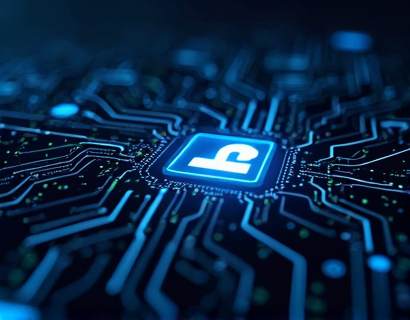Advanced Legacy File Password Recovery: Unlocking Forgotten Data with Cutting-Edge Technology
In the fast-paced world of technology, the ability to recover and access data from legacy files is crucial for maintaining productivity and ensuring business continuity. As organizations evolve, they often leave behind a trail of outdated files encrypted with outdated or forgotten passwords. This challenge is particularly acute for tech-savvy professionals and businesses that rely on accessing historical data to make informed decisions, comply with regulatory requirements, or simply to preserve corporate memory. The advent of advanced decryption software has revolutionized the way these professionals approach data recovery, offering sophisticated tools that simplify the process of unlocking forgotten data while maintaining the highest standards of security.
The need for advanced legacy file password recovery solutions stems from the complexities of modern data environments. Legacy systems, while still functional, often use encryption methods that are now obsolete or have been superseded by more secure algorithms. As a result, accessing these files without the original passwords can be akin to trying to open a locked safe without the combination. For businesses, this can mean lost productivity, increased operational costs, and even legal repercussions if sensitive information remains inaccessible. Advanced decryption software addresses these issues by providing robust, user-friendly tools designed to recover passwords and decrypt files efficiently and securely.
One of the key advantages of advanced legacy file password recovery software is its ability to handle a wide range of file formats and encryption types. Modern decryption tools are equipped to deal with everything from old WordPerfect documents to encrypted databases and email archives. These tools use a combination of algorithmic analysis, pattern recognition, and brute-force techniques to crack even the most complex encryption schemes. The software is designed to be versatile, ensuring that users can recover data from various sources without the need for extensive technical knowledge.
For tech-savvy professionals, the ability to recover forgotten passwords and access legacy files is not just a convenience but a necessity. These individuals often work with diverse systems and data sources, and the ability to quickly retrieve information from outdated files can significantly enhance their productivity. Advanced decryption software streamlines this process, allowing users to focus on higher-value tasks rather than getting bogged down by data access issues. By automating much of the decryption process, these tools save time and reduce the risk of human error, leading to more efficient workflows and better outcomes.
Security is a paramount concern when dealing with legacy file password recovery. Advanced decryption software is built with multiple layers of security to ensure that the recovery process does not compromise the integrity of the data. Encryption algorithms used in the recovery process are designed to be as secure as the original encryption methods, if not more so. This means that even if a password is recovered, the data remains protected from unauthorized access. Additionally, many advanced tools offer features such as session logging, access controls, and audit trails to provide an additional layer of security and compliance with regulatory standards.
The process of recovering passwords from legacy files typically involves several steps. First, the software scans the target file to identify the encryption method used. This can be a challenging step, as older files may use custom or proprietary encryption algorithms that are not widely documented. Once the encryption type is identified, the software employs a range of techniques to crack the password. These techniques include dictionary attacks, where the software tries common words and phrases, and brute-force attacks, which systematically try every possible combination until the correct password is found. Advanced tools may also use machine learning algorithms to predict and optimize the decryption process, further enhancing efficiency.
Another critical aspect of advanced legacy file password recovery is the ability to handle corrupted or partially damaged files. Over time, files can become corrupt due to various reasons such as hardware failures, software bugs, or human error. Advanced decryption software includes robust file repair mechanisms that can restore damaged files to a usable state before attempting to recover passwords. This ensures that even files that are no longer accessible through standard means can be recovered, providing a comprehensive solution for data recovery challenges.
For businesses, the implementation of advanced legacy file password recovery solutions can lead to significant productivity gains. By automating the decryption process, these tools reduce the time and resources required to access critical data. This is particularly beneficial for IT departments, which can allocate their time and expertise to more strategic initiatives rather than routine data recovery tasks. Moreover, the ability to quickly retrieve information from legacy systems enables faster decision-making and more agile responses to market changes, giving businesses a competitive edge.
In addition to enhancing productivity, advanced decryption software also plays a vital role in data archiving and compliance. Many industries are subject to strict regulations regarding data retention and access. Advanced tools help organizations meet these requirements by ensuring that historical data remains accessible and secure. For example, in the financial sector, the ability to retrieve encrypted transaction records from legacy systems is essential for audits and regulatory reporting. By providing reliable and secure password recovery options, advanced decryption software helps businesses maintain compliance and avoid potential penalties.
The technology behind advanced legacy file password recovery is continually evolving, driven by advancements in cryptography, machine learning, and cloud computing. Modern decryption tools leverage the power of cloud-based processing to handle complex decryption tasks more efficiently. This cloud-based approach not only enhances performance but also provides scalability, allowing users to recover large volumes of data without the need for extensive local resources. Furthermore, integration with other security and data management tools ensures a seamless workflow, making the recovery process more intuitive and user-friendly.
When selecting an advanced legacy file password recovery solution, it is essential to consider several key factors to ensure the tool meets your specific needs. First, evaluate the range of file formats and encryption types supported by the software. A comprehensive tool that can handle a variety of legacy files will provide greater flexibility and reliability. Second, assess the security features of the software, including encryption strength, access controls, and compliance certifications. Ensuring that the tool meets or exceeds industry security standards is crucial for protecting sensitive data. Third, consider the ease of use and user support offered by the provider. A tool with a intuitive interface and robust customer support can significantly enhance the user experience and reduce the learning curve.
In conclusion, advanced legacy file password recovery software represents a significant advancement in data management and security. By providing efficient, secure, and reliable tools for recovering forgotten passwords and decrypting legacy files, these solutions empower tech-savvy professionals and businesses to unlock their digital history with ease. The ability to access critical data quickly and securely not only enhances productivity but also ensures compliance and protects valuable information. As technology continues to evolve, the importance of advanced data recovery solutions will only grow, making them an indispensable asset for any organization dealing with legacy data.











































